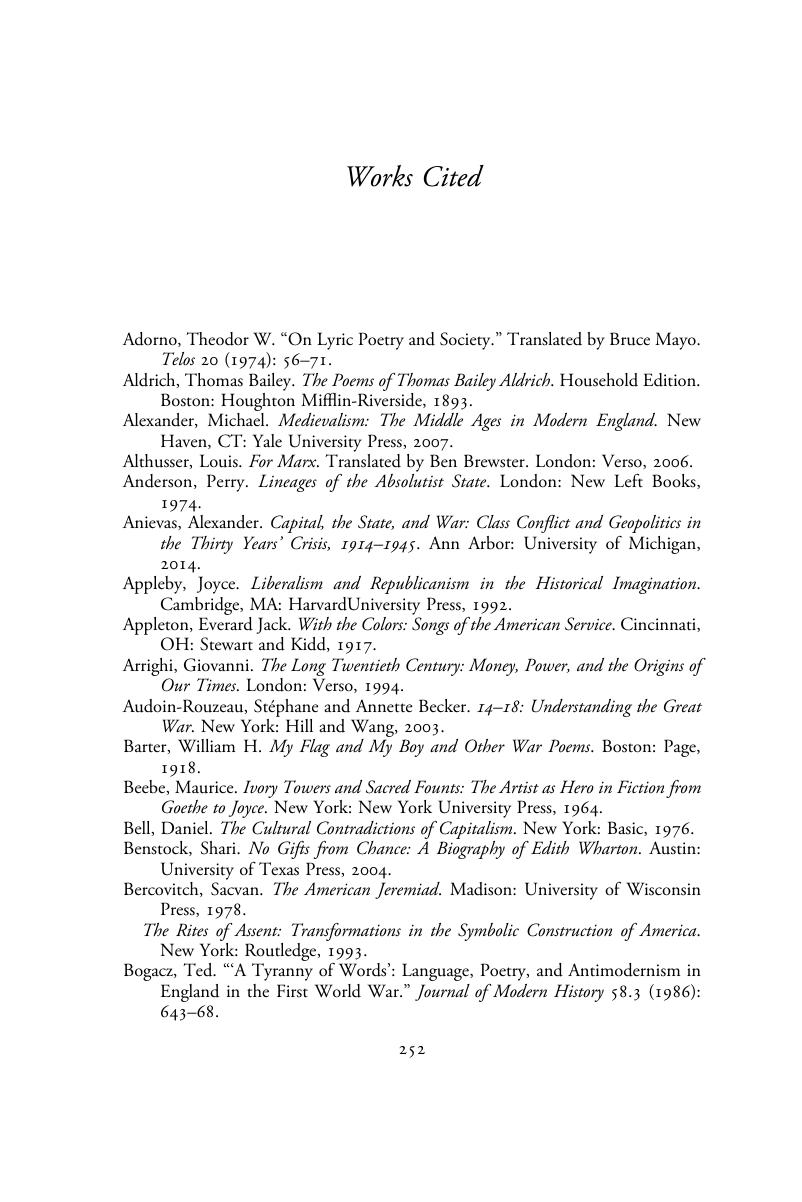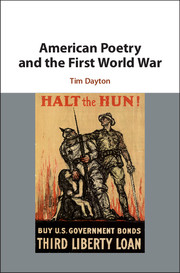Book contents
- American Poetry and the First World War
- American Poetry and the First World War
- Copyright page
- Dedication
- Contents
- Figures
- Acknowledgments
- Introduction
- Chapter 1 America Enters the War
- Chapter 2 American Intervention in the First World War
- Chapter 3 “Devotions Loyal Even to Death”
- Chapter 4 “Dulce et Decorum”
- Chapter 5 Some Versions of the Epic
- Chapter 6 “Wristers Etcetera”
- Conclusion
- Works Cited
- Index
- References
Works Cited
Published online by Cambridge University Press: 08 June 2018
- American Poetry and the First World War
- American Poetry and the First World War
- Copyright page
- Dedication
- Contents
- Figures
- Acknowledgments
- Introduction
- Chapter 1 America Enters the War
- Chapter 2 American Intervention in the First World War
- Chapter 3 “Devotions Loyal Even to Death”
- Chapter 4 “Dulce et Decorum”
- Chapter 5 Some Versions of the Epic
- Chapter 6 “Wristers Etcetera”
- Conclusion
- Works Cited
- Index
- References
Summary

- Type
- Chapter
- Information
- American Poetry and the First World War , pp. 252 - 264Publisher: Cambridge University PressPrint publication year: 2018



